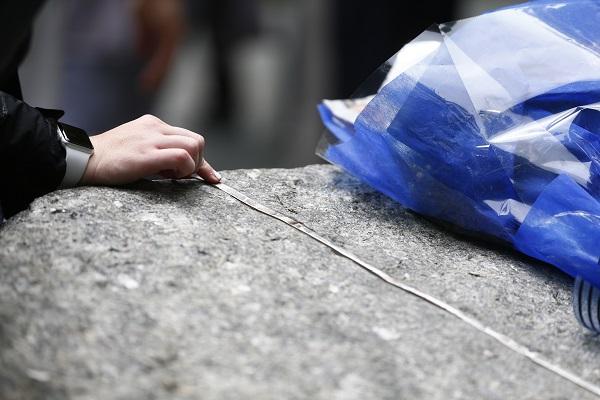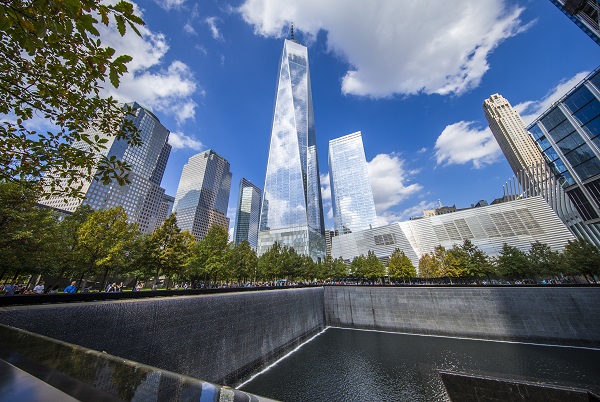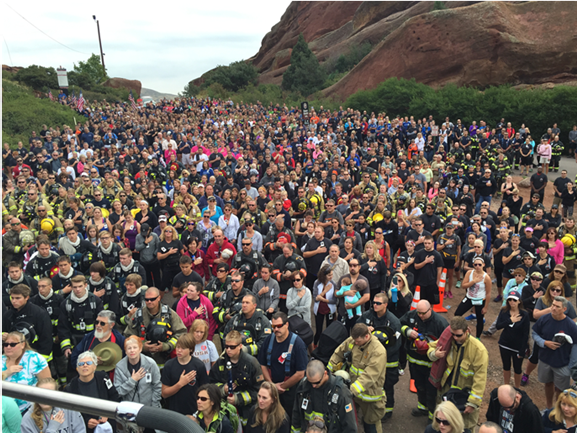Make a donation to the museum
9/11 Health Effects Seminar Planned at Borough of Manhattan Community College
9/11 Health Effects Seminar Planned at Borough of Manhattan Community College

As the anniversary of 9/11 approaches, the world’s attention will shift to remember the victims and to recall what happened at Shanksville, Pennsylvania, the Pentagon and the World Trade Center.
Victims’ families will gather at the 9/11 Memorial at the World Trade Center on the 18th anniversary of the attacks for a commemoration ceremony in which the names of their loved ones will be read aloud.
There were 2,977 people killed in the 2001 attacks. The impacts of the attacks are still being felt today. Nearly 18 years later, rescuers, recovery workers, survivors, lower Manhattan residents and others who were exposed to Ground Zero toxins and hazards after the attacks are sick or have died from 9/11-related illnesses.
The 9/11 Memorial Museum is committed to preserving the history of the attacks, honoring the victims and recognizing the rescue and recovery effort along with the ensuing 9/11 health crisis.
The names of everyone killed in the 2001 attacks and the 1993 bombing of the WTC are inscribed in bronze ringing the 9/11 Memorial’s enormous twin reflecting pools. In May, the 9/11 Memorial Glade opened, creating a new open-air pathway dedicated to those who are sick or who have died from 9/11 illnesses. It also honors the men and women of the rescue and recovery operation.
The grueling recovery operation became a source of inspiration for many. The workers did more than clean up the attack sites. They provided access to Ground Zero for victims’ family members. They recovered personal possessions, many of which have been entrusted to the care of the Museum as part of its permanent collection.
The stories of people who are sick or who have died from 9/11-related illnesses are not only told through the 9/11 Memorial Museum’s exhibitions and programming, but also through special events and work with community partners.
There are weekly bagpipe performances on the Glade to help raise awareness of the 9/11 health issue, and there is a commemoration ceremony each year on the anniversary of May 30, the day marking the formal end of rescue and recovery operations in 2002.
An information seminar on 9/11 health effects planned for Monday, Sept. 16, is open to anyone who was in lower Manhattan during the eight months after the attacks. The seminar is at the Tribeca Performing Arts Center of the Borough of Manhattan Community College. The college was damaged when the towers collapsed on 9/11.
While the 9/11 commemoration ceremony is for remembering and honoring the victims of the attacks, it also allows for time to think about how the aftermath of 9/11 persists all these years later in life-threatening illnesses and deaths linked to exposure to toxins and hazards.
By 9/11 Memorial Staff
Previous Post
2019 Commemoration Ceremony for 18th Anniversary of 9/11 Attacks

On Wed., Sept. 11, 2019, the 9/11 Memorial & Museum will lead the world in commemorating the 18th anniversary of the horrific attacks of 9/11.
Next Post
Commemorate 9/11 in Your Community: The Colorado Memorial Stair Climb

The annual Colorado Memorial Stair Climb honors and remembers FDNY firefighters who gave their lives for others on 9/11.